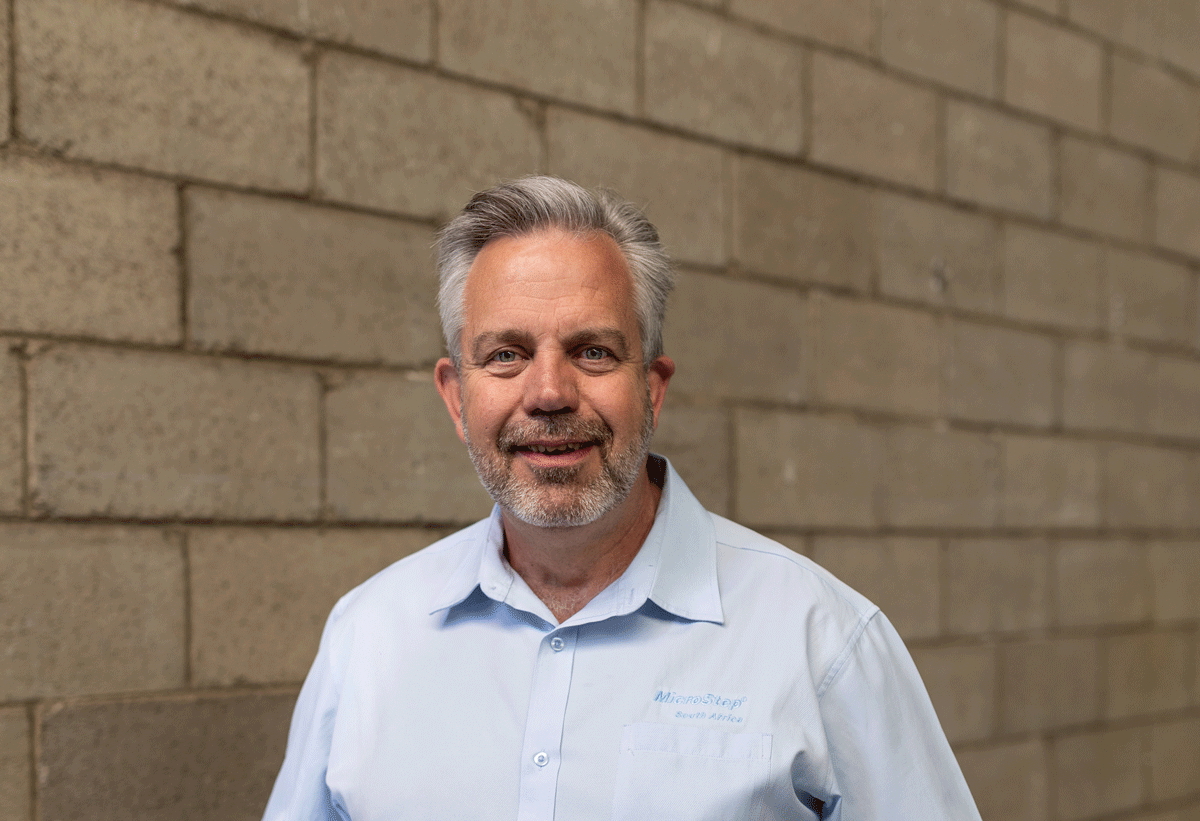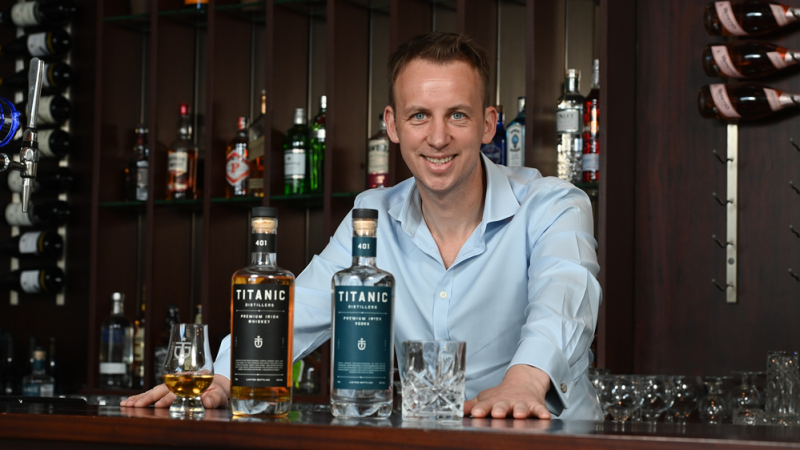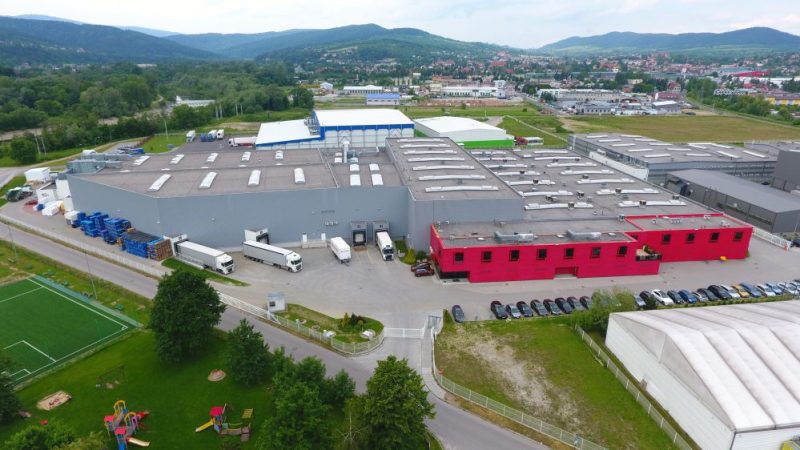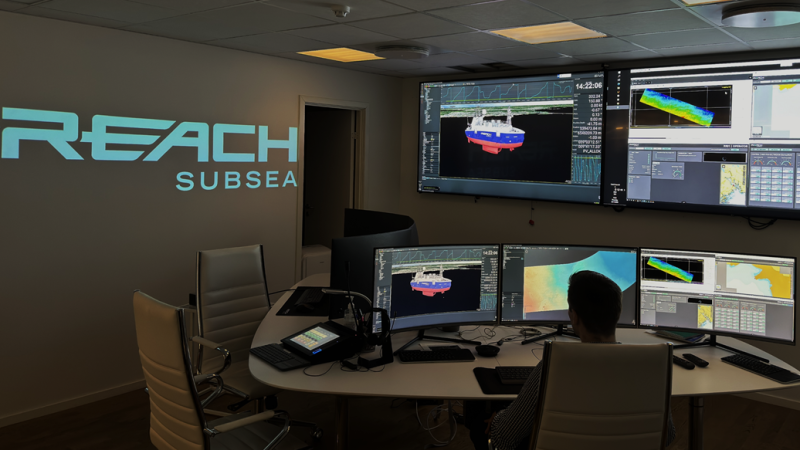MicroStep is not a typical cutting machine supplier. The company is headquartered in Gauteng, some 20 km from Johannesburg and aims at enabling its clients’ factories to produce their products or parts in-house at lower cost while optimising their production output.
Managing Director Ludwig Oellermann explains that the company supplies CNC machines equipped with plasma, fibre laser, oxyfuel, waterjet and routing technologies and also develops and supplies advanced control systems for machine tools and CAM software with custom modules for various applications.
Mr Oellermann, who is of German origin and whose forefathers came to the country as farmers, explains that ‘machinery’ has played a prominent part in his own family history. With a grandfather who was a blacksmith, and other family members in trade, he believes it is crucial to know where we have come from, to be able to understand where we are going.
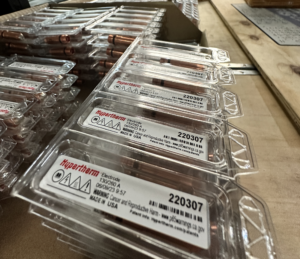 The smart factory
The smart factory
And Mr Oellermann seems to understand that well. With wide-ranging managerial experience in the cutting tool industry, he became the Managing Director of MicroStep, a specialist in advanced metal cutting technology, in 2014, expanding and growing the brand in southern Africa, and moving the business to provide a wider solution to help factory owners achieve improved performance.
“While people installing CNC cutting equipment experience a huge increase in efficiency on the machine, previous bottlenecks in other parts of the process tend to remain. Thus, they are not able to efficiently use the benefits of the CNC equipment and spread those benefits throughout the whole of the company value chain.”
To address this issue MicroStep South Africa, came up with a new solution – FactorySmart, a concept that provides a comprehensive machinery and process automation solution for fabrication factories across South Africa. FactorySmart is a one-stop shop for all the clients’ automation needs, whether they need cutting, bending, or welding machinery, solar power, automation software or factory robotics, all with a view to achieving optimal efficiency and productivity.
While MicroStep cutting machines are made in Slovakia, FactorySmart has numerous joint ventures that supply the software, robotic integration applications, solar power systems and other parts of the overall solutions.
Ludwig Oellermann explains that installing the latest CNC software and processing machinery with seamless integration into the client’s total value chain ensures a fully operational and optimised factory process. To further future-proof the factory, the company offers solar energy solutions that are not only installed but are also financed by FactorySmart.
“We strive to combine all aspects of the clients’ factory’s operations, from machinery and robotics to software and energy sources, to provide them with comprehensive solutions that will guarantee the success of their factory.”
People at the core
FactorySmart also provides financial support to companies with local banks, and promotes the rent-to-own option, a flexible and accessible pathway to acquiring cutting-edge technology that remains up to date while retaining working capital.
However, there is one important component that stands above the best software and the highest level of automation, Oellermann points out – the people. “Within the corporate world, you will often hear that ‘people are the most important asset’. I disagree. An asset is something that generates an income, so thinking of people in this context is limiting. People are not an asset; they are the organisation. Without people, no organisation would exist.”
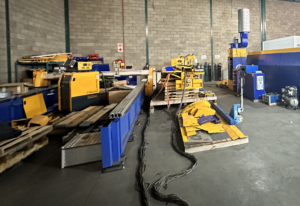 He reflects that this mind shift brought him to apply the principles of ‘2 Second Lean’ by Paul Akers, a book on a lean leadership and culture, to help his customers to start thinking differently, to consider how to implement lean manufacturing principles from the bottom up.
He reflects that this mind shift brought him to apply the principles of ‘2 Second Lean’ by Paul Akers, a book on a lean leadership and culture, to help his customers to start thinking differently, to consider how to implement lean manufacturing principles from the bottom up.
“At each factory, we start by looking at individual workstations, and identify what is needed from the ground onwards. And only then do we install the machinery – the CNC laser cutting machines, robotic welding equipment and laser hand welding equipment. In this way, we can achieve a lasting effect throughout the value chain.”
The right mindset
He affirms that pushing FactorySmart and the 2 Second Lean principles has resulted in numerous success stories. Just in South Africa the company has some 110 technology installations. “Our drive is to assist companies to grow much more dynamically in terms of manufacturing. In Africa, many businesses still use hand tools and opportunities for modern technology are plentiful in the whole Sub-Saharan region. We are now looking at Namibia, a country with a strong economy and rapid development, we have projects in Botswana and Zimbabwe. We have also installed technology in Uganda.”
Ludwig Oellermann believes that success is about the mindset. “South Africa has a lot of challenges. In this challenging environment we strive, as their solution partner, to help companies automate and optimise, demonstrating that no matter what the circumstances you will find yourself in, you can still grow. Therefore, I again highlight the ‘2 Second Lean’ principles that help people to implement the philosophy of lean manufacturing from bottom up.”
“That is also what we are going to push in the future. We have set targets for the next three to four years and we seem to be well on track. The overall plan is to expand our customer base in the Sub-Saharan region, assisting companies to grow with reference to lean manufacturing. That is my drive as well.”
“It’s not easy but it is exciting. As in the famous ‘when the going gets tough, the tough get going’, we would like to be a bit of a beacon of hope in southern Africa, showing that first-class automation solutions can make a difference. However, this cannot be achieved in isolation, it must be a team effort. It is the people who drive the whole process.”
